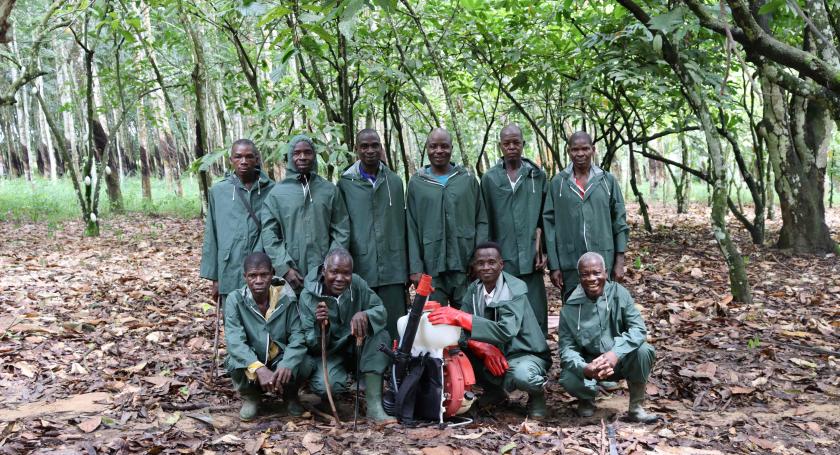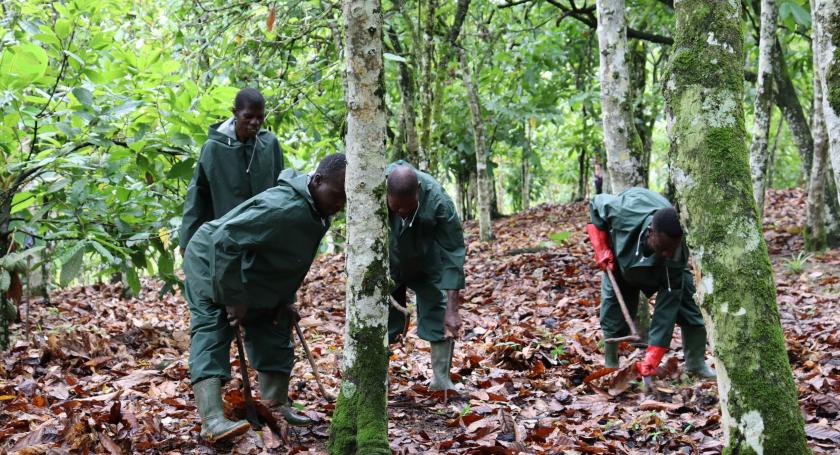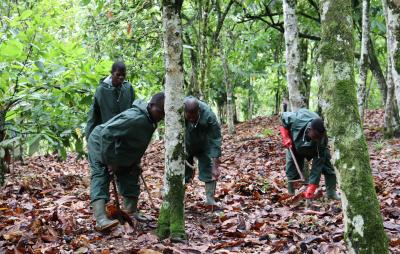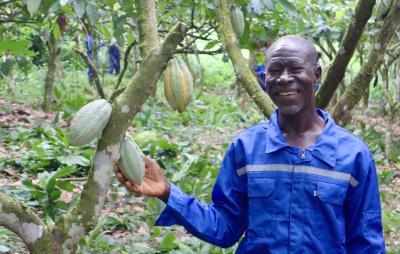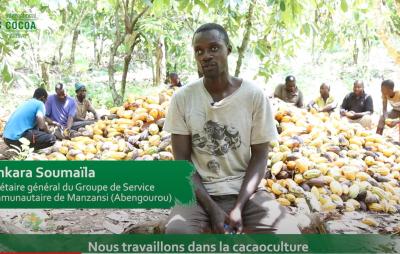An unconditional cash transfer, with an incentive to spend on adult labour, has brought positive results in cocoa-growing communities in Côte d’Ivoire. The innovative approach strengthened livelihoods, increased the supply of affordable adult labour within the community, and provided families with an alternative to hazardous child work, suggesting it could be an effective part of efforts to prevent and address child labour.
The pilot project, supported by the Jacob’s Foundation and Touton, provided targeted cocoa-producing households with a one-off unconditional cash transfer. If they chose to hire a Community Service Group for agricultural labour using all or part of the money, ICI provided an additional subsidy to double the amount spent on labour. Community Service Groups consist of equipped and skilled adults who offer agricultural services to farmers in their community at an affordable rate. They provide an alternative means of doing work that might otherwise fall on children.
Of the households receiving the cash transfer, around 60% were covered by a Child Labour Monitoring and Remediation System (CLMRS). In these cases, a farmer received the cash transfer if a case of child labour had been identified in their household. The other 40% of cash beneficiaries were selected by a local needs assessment committee based on a set of defined vulnerability criteria.
Key findings
Recipients spent the cash transfer on labour, food, agricultural equipment, and children’s education. Around half used the money to hire Community Service Groups, spending on average almost half of the total amount received on their services.
Participants reported high levels of satisfaction with the quality of services provided by the labour groups. They also claimed that hiring the Community Service Group reduced their workload, in turn decreasing the need for their children's help on the farm.
Strengthened Community Service Groups
Demand for Community Service Groups in the targeted communities was driven up by the project and remained high even after the subsidy expired, in some cases exceeding the groups’ capacity to deliver. Some groups responded by expanding their capacity and professionalism. In addition, we noticed that new Community Service Groups had been set up by entrepreneurial youth in five project communities without external support.
Benefits for children
Children benefitted from the project in several ways, including by working less on the farm. Some families received the cash transfer because their child had been identified in child labour through a Child Labour Monitoring and Remediation System (CLMRS), which allows us to track their progress over time. Two-thirds of these children (66%) had stopped doing hazardous work by the most recent follow-up visit. While these figures are based on a small sample of children, this suggests that cash transfers combined with an incentive to spend on adult labour is a particularly effective approach. This will need to be confirmed with future follow-up visits, in addition to further research.
Next steps
Overall, cash recipients, cooperative representatives, community leaders and members of Community Service Groups recommended that this cash transfer programme should be extended in the communities where it was piloted and scaled up to reach more communities. They also recommended providing further support to Community Service Groups to meet an increase in demand, so that more families would be able to benefit. Like all cash transfer programmes, the question of who receives support is a sensitive topic. Our findings underline the importance of using transparent eligibility criteria and communicating them clearly in targeted communities to avoid misunderstandings.

